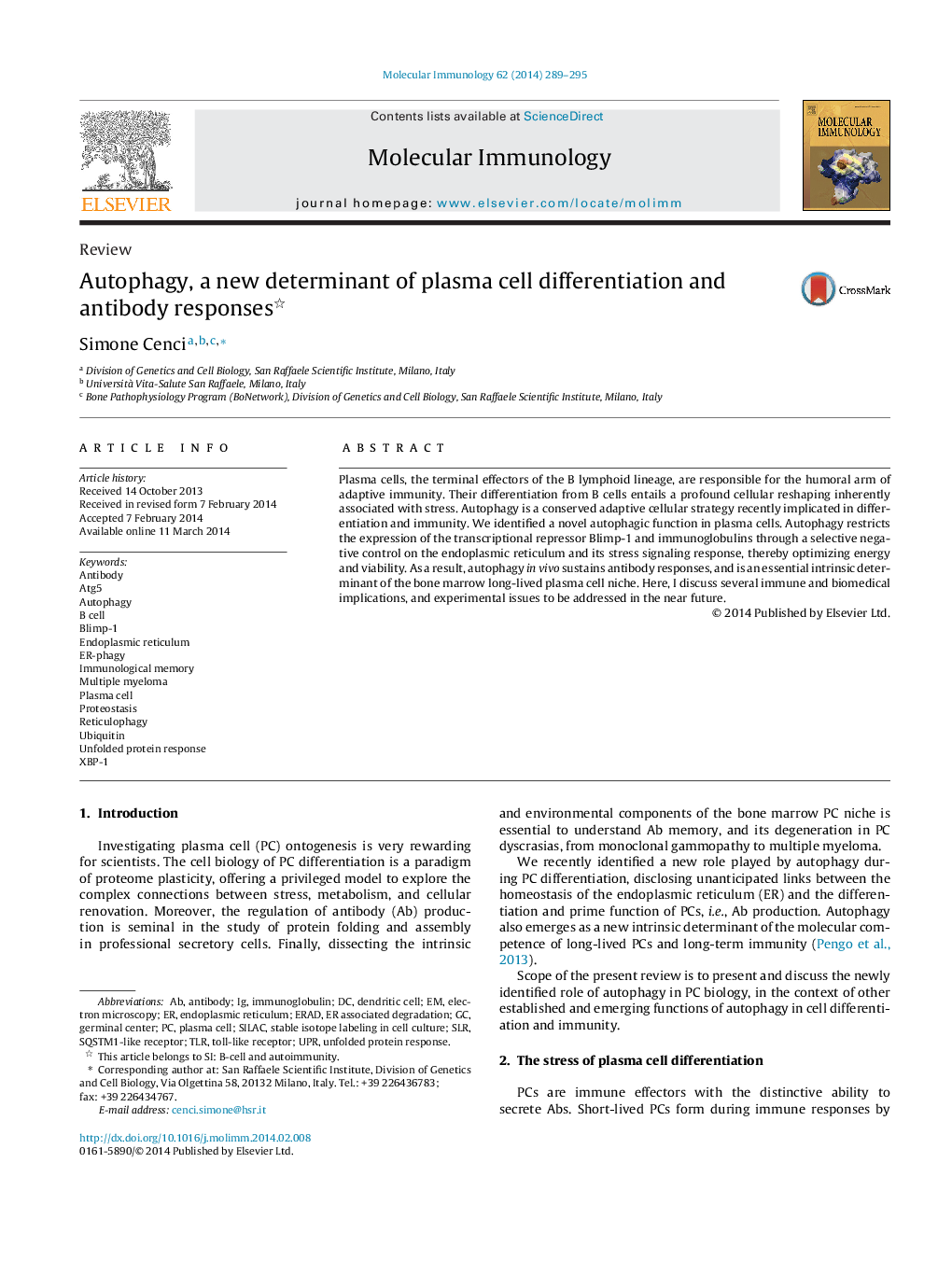| Article ID | Journal | Published Year | Pages | File Type |
|---|---|---|---|---|
| 5916882 | Molecular Immunology | 2014 | 7 Pages |
â¢Autophagy ensures proteome plasticity during differentiation and under stress.â¢Autophagy plays multiple roles in innate and adaptive immunity.â¢In B cells, autophagy is dispensable for the germinal center reaction.â¢Selective ER-phagy restricts Ig production optimizing plasma cell viability.â¢Autophagy sustains TD and TI antibody responses and is essential in BM plasma cells.
Plasma cells, the terminal effectors of the B lymphoid lineage, are responsible for the humoral arm of adaptive immunity. Their differentiation from B cells entails a profound cellular reshaping inherently associated with stress. Autophagy is a conserved adaptive cellular strategy recently implicated in differentiation and immunity. We identified a novel autophagic function in plasma cells. Autophagy restricts the expression of the transcriptional repressor Blimp-1 and immunoglobulins through a selective negative control on the endoplasmic reticulum and its stress signaling response, thereby optimizing energy and viability. As a result, autophagy in vivo sustains antibody responses, and is an essential intrinsic determinant of the bone marrow long-lived plasma cell niche. Here, I discuss several immune and biomedical implications, and experimental issues to be addressed in the near future.
